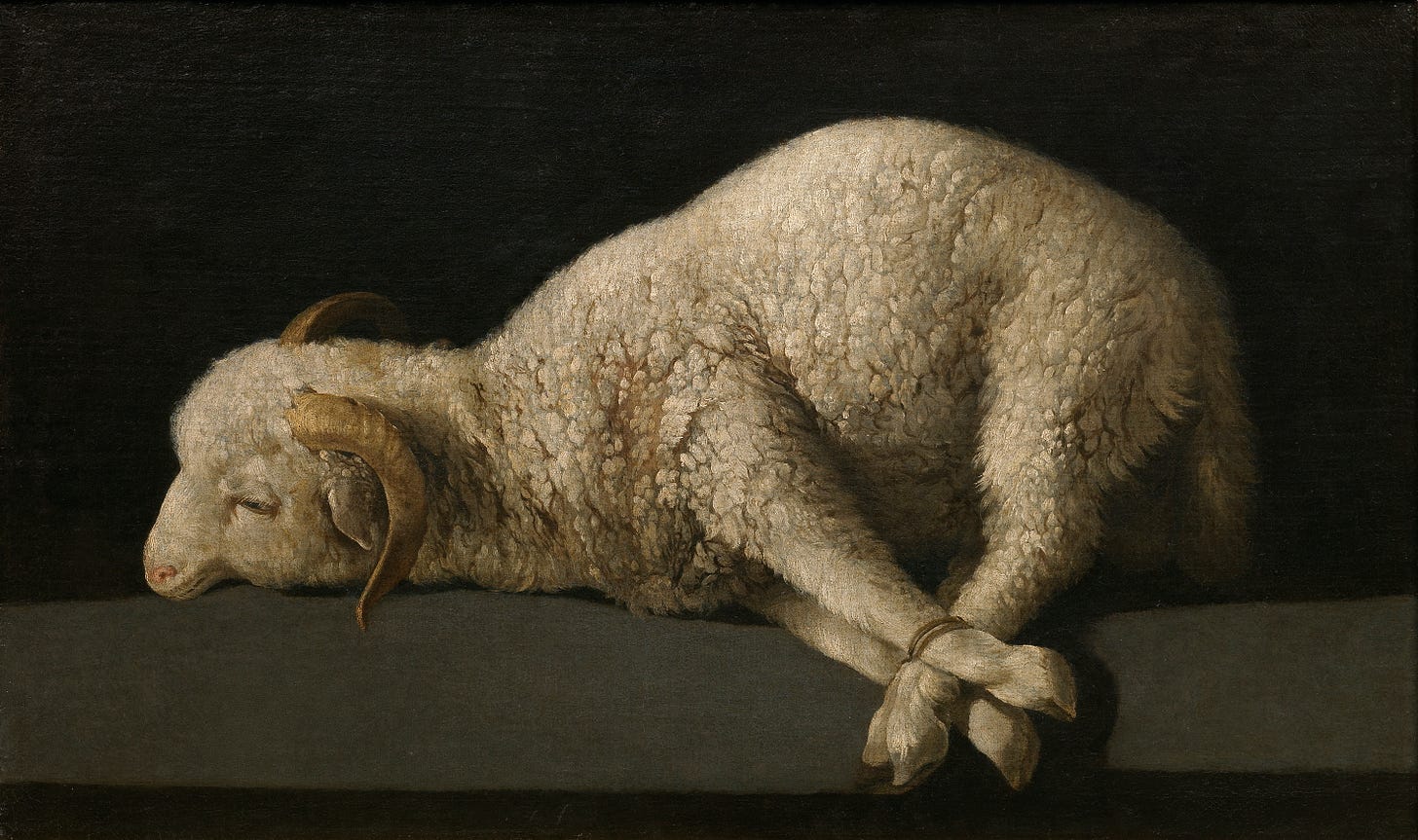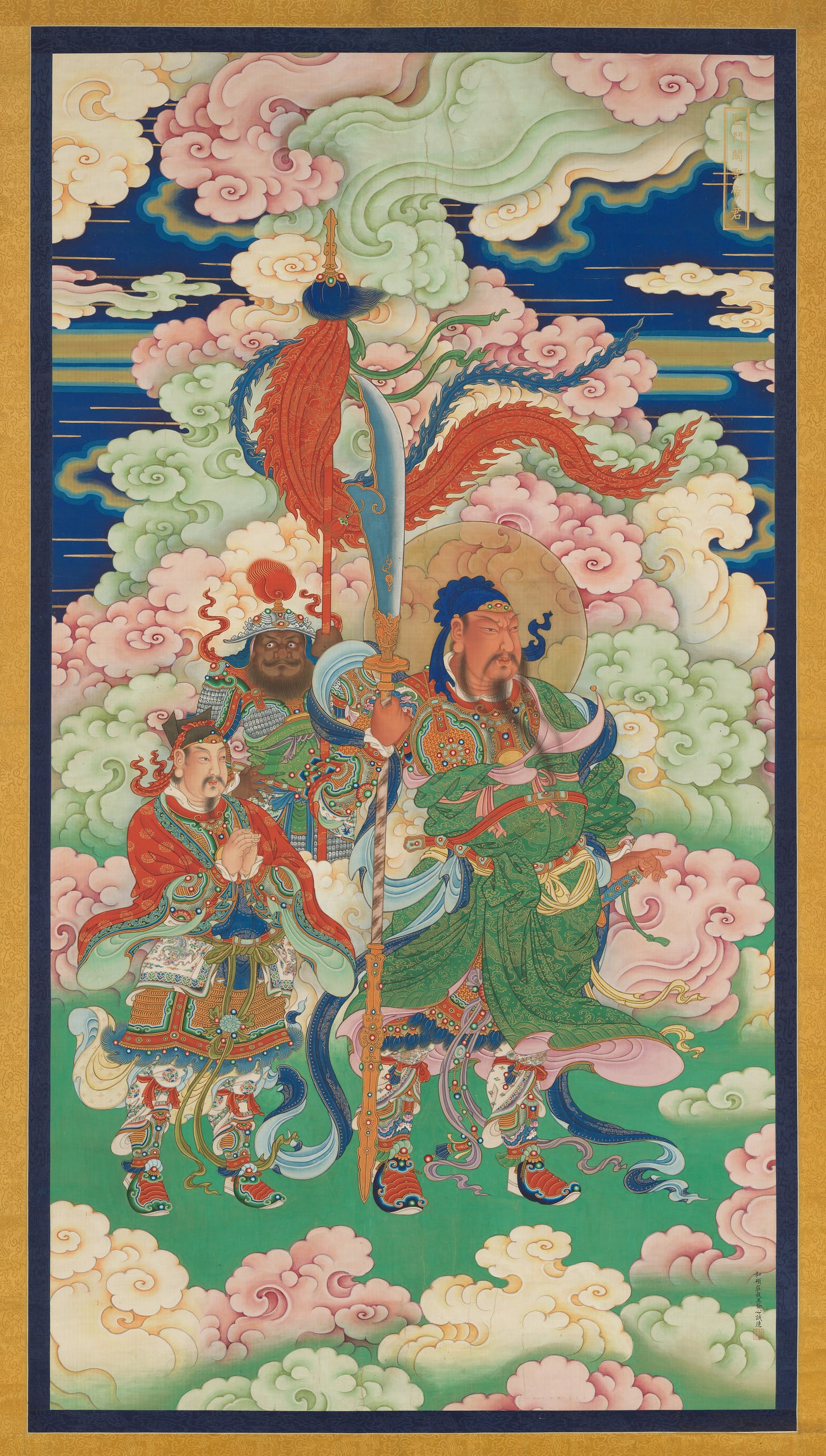Dear Justin,
This is my third and final letter in my brief series on the three great Confucian virtues — lǐ (often translated as “ritual propriety” or “politeness”), rén (“compassion”), and now yì (“righteousness” or “justice”). As I mentioned earlier, it didn’t feel quite right to address one without the others, especially since these three values in particular are so intricately woven together within the system of Confucian ethics, which has guided the magnificent culture of the Chinese for millennia. They function less like separate doctrines and more like three harmonizing notes in a chord—distinct, but resonating together to form a single melody of the virtuous life and, perhaps even more importantly, of the virtuous society.
I’m writing this letter now because I may not be able to respond for a little while since early in the morning on August 12th — a week from tomorrow — I will once again bid my friends and family here in the States farewell and return to the Middle Kingdom for a third year of teaching, this time in Shanghai. I admit I’m nervous and excited, just as I always have been before crossing the Pacific, but I trust that good things will come from my efforts, in my own minuscule way, to foster greater cross-cultural understanding and friendship between East and West.
In my letter on lǐ, I claimed it was a difficult concept for Westerners to translate. Yet among the three, 义 (yì… I’ll use the Chinese character from here on) is perhaps the most challenging for modern Westerners to fully grasp and implement. Not because 义 is abstract—it’s not—but because it’s demands upon our lives are very uncomfortable. 义 resists commodification. It makes demands on us that feel at odds with our western cultural instincts of moral relativism, convenience, and personal freedom. If lǐ shows us how to behave and rén shows us how to care for our fellow humans, then 义 confronts us with the difficult question: what is the right thing to do, and will you do it, even when it costs you?
At its core, 义 is about righteousness—not in the theological sense of imputed grace or being “made right” before God, but in the ethical sense of moral integrity, justice, and doing what is honorable. If we were to try to place 义 in Christian theological categories, it would bear more resemblance to John Wesley’s notion of imparted righteousness, in which our own character and actions conform through the process of sanctification to the perfect, universal, and self-sacrificial loving will of God for all of creation, especially for other humans. Or to use biblical language, we could compare 义 to the original richness of the Koine Greek word δικαιοσύνη (dikaiosunē), which blends together “righteousness” and “justice.” The primary difference between the two, however, is that biblical righteousness is before God, while Chinese 义 is humanistic; it is before others.
For Confucius, 义 is the inward compass that points a person toward what is just and proper, even when no one else is watching. 义 is conscience with backbone. It demands that one stand firm in the face of temptation, deceit, or personal advantage. It is not the same as legalism, nor is it blind obedience. 义 is rather a posture of the soul—a habit of choosing the good, the just, the fitting, even when it would be easier not to. It places the good of the whole above selfish gain. How remarkably different would our own nation’s political leadership look if it were marked by 义 as opposed to the unashamed acquisition of greater personal gain and glory! Instead of disinterested service for the greater good and humble, servant leadership as, say, John Adams envisioned for this republic’s leaders, we read instead of exclusive banquets held only for the world’s riches investors in the president’s latest memecoin cryptocurrency.
The character 义 itself is instructive. 义 is formed by combining the character 羊 (yáng), meaning “sheep,” with 我 (wǒ), meaning “self” or “I.” Some scholars suggest this points to the idea of self-sacrificial righteousness — a willingness to lay down one’s own interests, to align the self (我) with that which is pure, innocent, and sacrificial (羊). A righteous person, then, is one who chooses the good even at personal cost, whose self is governed not by impulse or gain, but by a higher moral calling. It’s hard not to once again hear echoes of the teachings of Jesus here: “Greater love has no one than this: to lay down one’s life for one’s friends.” (John 15:13). How remarkable that, in this way, both the Confucian and Christian traditions look to sheep as a moral exemplar for our own lives. The Christian New Testament, however, goes so far as to claim that a slaughtered and bleeding lamb is actually on the throne at the very center of the universe (see Rev. 4), thus flipping upside down all of our notions of power and glory.

It strikes me that 义 maps onto many of the stories we tell ourselves in both Chinese and Western traditions, though with slightly different emphases. In ancient China, the righteous man (yì rén) is a figure of principled restraint—a village elder who settles disputes with fairness, a scholar-official who refuses to flatter his superior for personal gain, a soldier who declines an unjust order. Righteousness is often quiet, sober, and dignified. In the West, our stories of righteousness tend to be more dramatic and individualistic—John the Baptist rebuking Herod, Martin Luther nailing his theses to the church door, Rosa Parks refusing to give up her seat. In both cultures, though, 义 clearly requires courage — especially the courage to endure suffering without becoming bitter or self-righteous.
One of the most famous Chinese stories of 义 is that of Guan Yu, the famed general from the Romance of the Three Kingdoms. Though romanticized and mythologized over the centuries, his story still captures the imagination because it so clearly embodies righteousness. Known for his unwavering loyalty and moral rectitude, Guan Yu was revered not merely for his military skill, but for his personal integrity and incorruptibility. He once chose execution over betraying his sworn brotherhood, and legends abound of how he turned down bribes and honors to remain faithful to his principles. His name became synonymous with 义 in China — and even today, small shrines to Guan Yu can still be found in Chinese shops, restaurants, and police stations, where he is venerated as the “patron saint,” so-to-speak, of loyalty and justice.

But here’s the key we cannot miss as western individualists: in the Confucian worldview, 义 is never mere personal piety. It always has a social dimension. A person is not righteous for the sake of their own self-image, but for the good of the whole. You act justly to preserve harmony, to uphold integrity in your community, to model right action for others. And unlike Western conceptions of “standing up for the truth” that can sometimes feel loud, self-congratulatory, or martyr-like, Confucian 义 tends to be quiet, steady, and humble — even if no less firm.
As I reflect on this from my little corner of exile, I find myself wondering what an embodied commitment to 义 might offer to our confused and anxious American culture. You and I have both lamented in these epistles how truth has been reduced to tribalism, how the loudest voices claim the moral high ground while practicing neither compassion nor integrity. We live in a time when everyone seems to want to appear righteous — especially online — but few seem willing to actually be quietly, humbly righteous when it comes to their daily actions, their spending habits, their treatment of others, or their fidelity to vows and promises.
I know it’s a bit of a pipe dream, but what if our greatest cultural heroes celebrated online or in the media were not the richest or most famous or most beautiful, but rather those who live quietly with integrity—parents and spouses who keep their promises, employees who tell the truth, neighbors who look out for one another?
At the risk of syncretism, could I suggest that we use “Blessed are those who hunger and thirst for 义” as a modern mantra or prayer?
The ethical teachings of Confucius and Christ seem to have met yet again. Both see righteousness not as a weapon to wield against others or as a tool for gaining political influence, but as a calling to live by, even a burden to carry. Both warn us against hypocrisy. Both envision a society that flourishes only when its people, and especially its leaders, act with moral integrity — not grandstanding, but in quiet submission.
So let me sum up our final lesson from the Confucian triad: Lǐ teaches us how to live in harmony with others, Rén invites us to love rightly, and Yì compels us to stand for justice (“what love looks like in public”) even when doing so might prove costly.
That, my friend, feels like a gospel worth living and sharing. Peace be with you.
Your Friend in Exile,
Greg





Thank you for a great read, I have not explored Confucianism outside of my undergrade so I benefited from the Christian juxtaposition. A peaceful day to everyone.